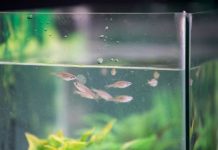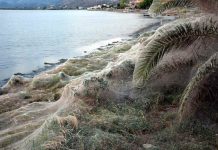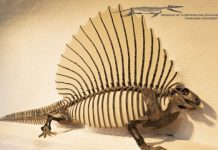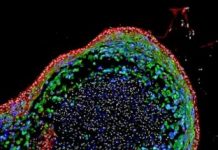Research: Gambling monkeys help scientists find brain area linked to high-risk behavior —
Monkeys who learned how to gamble have helped researchers pinpoint an area of the brain key to one's willingness to make risky decisions.
The...
Research: Gut fungus exacerbates asthma in antibiotic-treated mice —
A non-pathogenic fungus can expand in the intestines of antibiotic-treated mice and enhance the severity of allergic airways disease, according to a study...
Research: Pairing zebrafish by personality improves fitness of the species —
Scientists have challenged the theory of "love at first sight" after discovering that they can boost the reproductive success of zebrafish by pairing...
Research: NASA balloon mission captures electric blue clouds —
On the cusp of our atmosphere live a thin group of seasonal electric blue clouds. Forming 50 miles above the poles in summer,...
Research: Real-word driving produces up to 16 times more emissions, causing 2,700 premature deaths...
In September 2015, the German automaker Volkswagen was found to have illegally cheated federal emissions tests in the United States, by intentionally programming...
Spider web in Greece: 1000-Foot-Long Spider Web Is Just a Summer Orgy
Spider web stretches 1,000 feet across lagoon in Greece.
High temperatures in Greece have led to the emergence of an incredible 1,000-foot spider web covering...
Research: Kiwifruit duplicated its vitamin C genes twice, 50 million and 20 million years...
Today's kiwifruit, a member of the Chinese gooseberry family, contains about as much vitamin C as an orange. This extra boost in vitamin...
Research: Study of fossil bones leads to new conclusions about spine’s importance —
Mammals are unique in many ways. We're warm-blooded and agile in comparison with our reptilian relatives.
But a new study, funded by the National...
Research: Tiny organoids enable personalized disease diagnosis, regenerative therapies —
Scientists working to bioengineer the entire human gastrointestinal system in a laboratory now report using pluripotent stem cells to grow human esophageal organoids.
Published...
Research: Quantifying ‘dark data’ in fossil collections is a call to arms; heralds a...
Days after a fire tore through Brazil's National Museum and destroyed specimens of irreplaceable heritage, a team of scientists has quantified the vast...
Top News
Hey ISIS, You Suck: Local Muslims Post Anti-ISIS Billboard
A new billboard on Manchester Road in Missouri reads, "HEY ISIS, YOU SUCK!!! From: #ActualMuslims."
A group of Muslim-Americans have put up a blunt billboard...





















